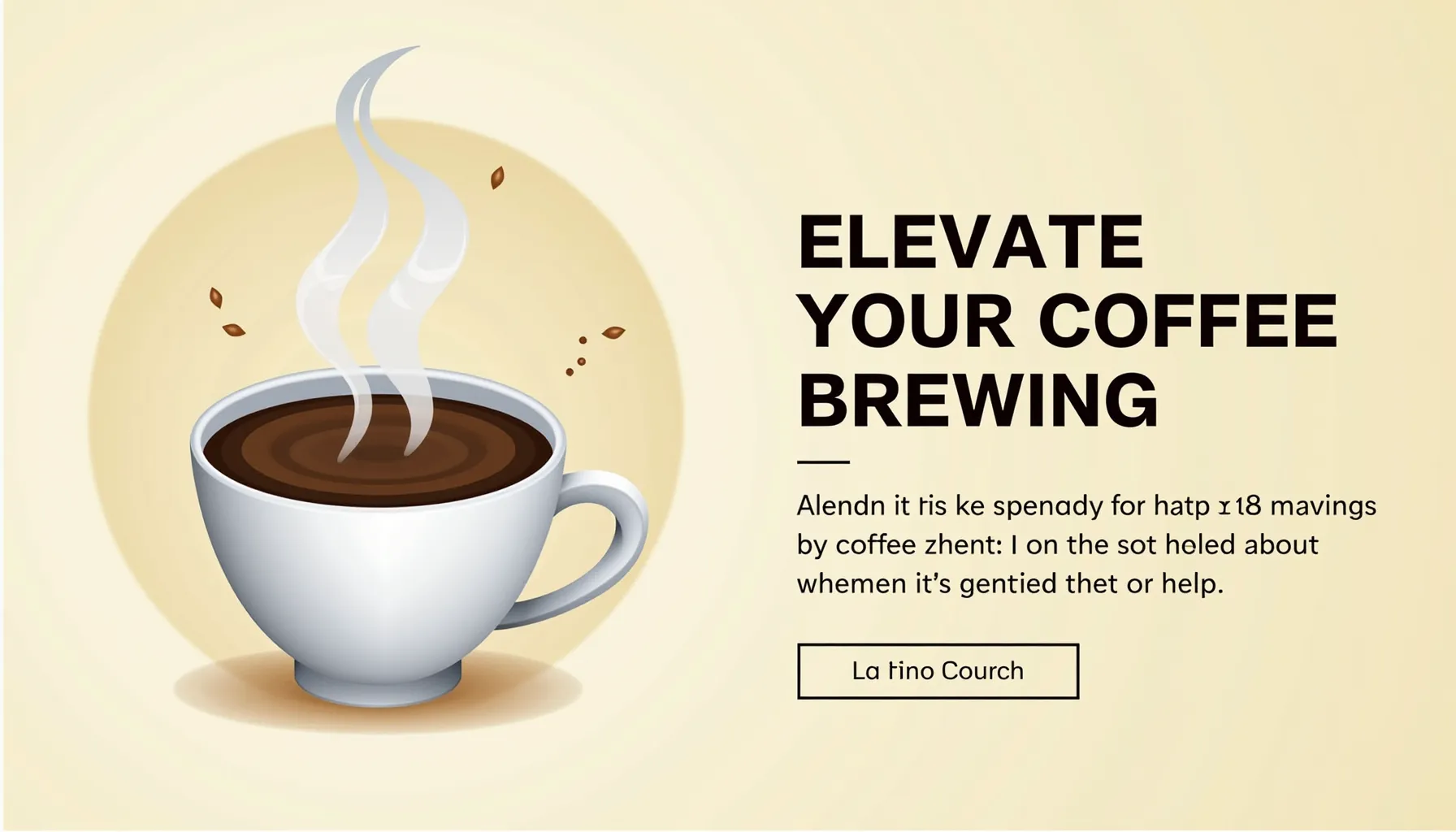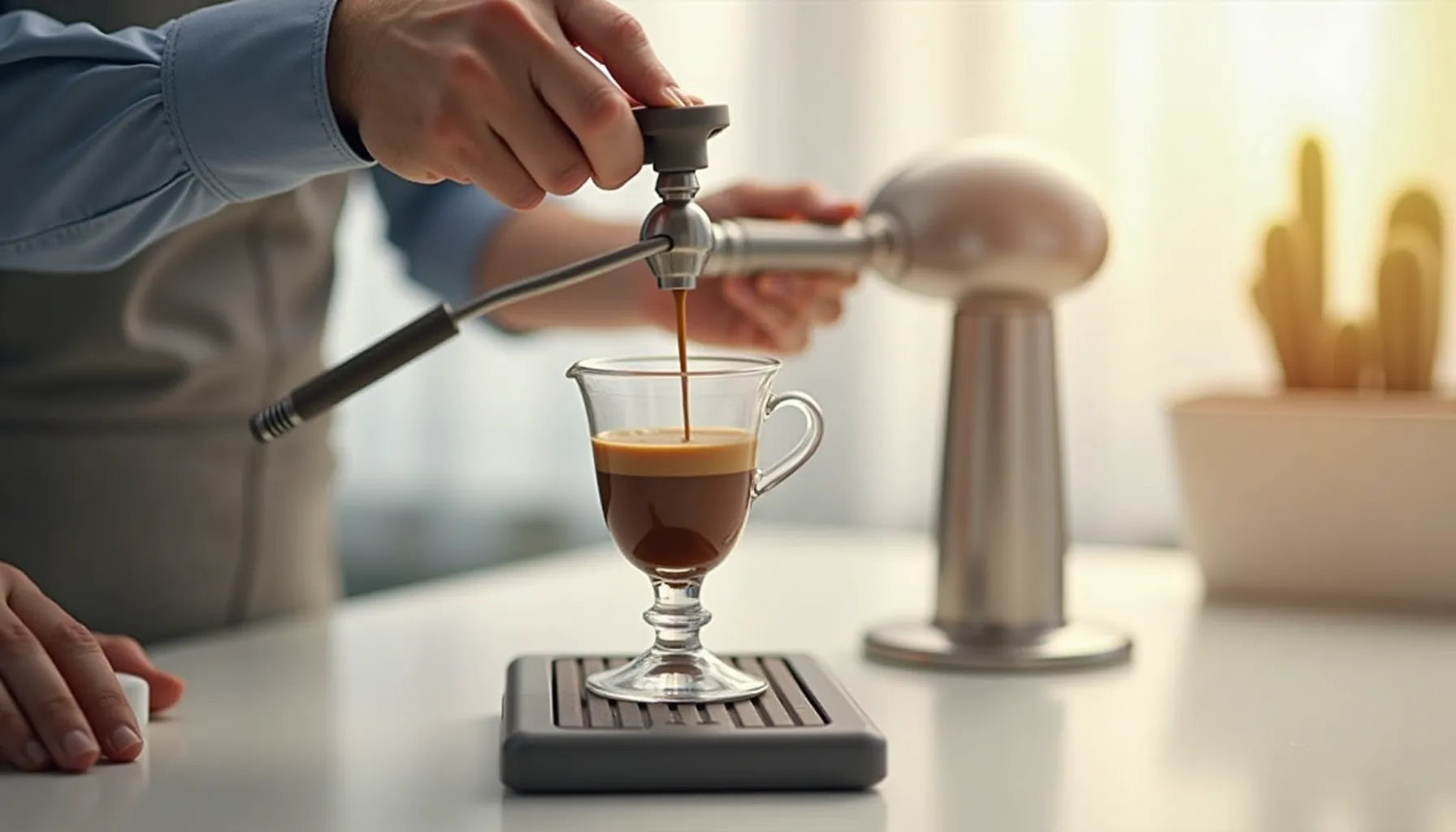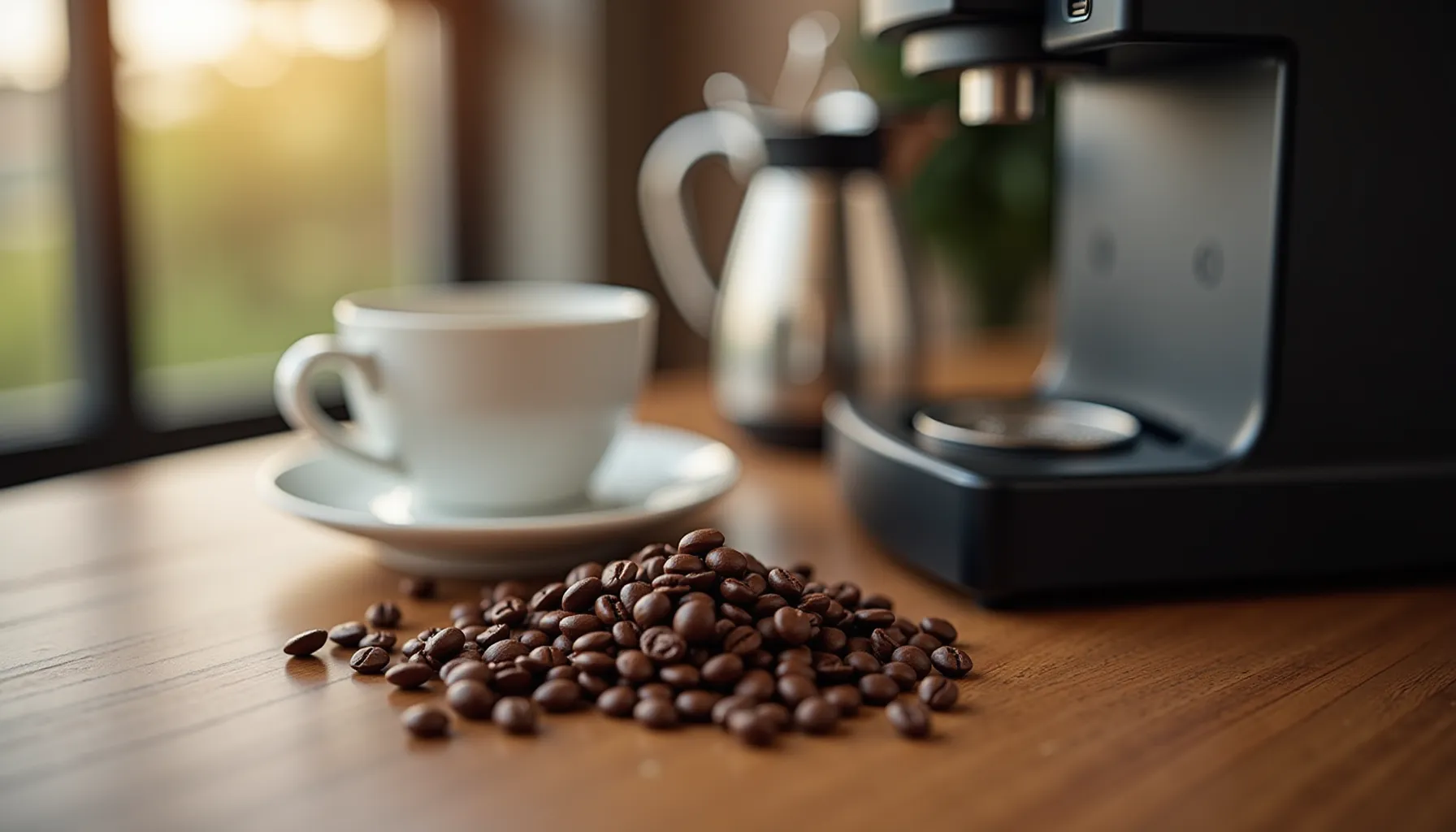When you ask yourself, “ does coffee have carbs? ” you’re diving into a topic that not only affects what you sip each morning but also ties into your broader dietary choices. Whether you’re trying to reduce your carbohydrate intake for health reasons , following a specific diet, or simply curious about your daily nutrition, understanding the carb content in coffee is crucial. With so many coffee options and tempting additions like cream and sugar, it can feel overwhelming to navigate your choices.
In this article, we’ll explore the carbohydrate content of various types of coffee, including black coffee's surprisingly low numbers compared to specialty drinks. We’ll also discuss how different brewing methods can affect the nutrients in your cup and how additives can drastically change the carbohydrate count of your favorite beverages. With these insights in hand, you'll be better equipped to enjoy your coffee without compromising your dietary goals.
Key Takeaways
- Understanding Carbohydrates: What they are and their role in your diet.
- Does Coffee Contain Carbs?: The carb content in black coffee and other variations.
- Specialty Coffee Drinks: A breakdown of popular coffee beverages and their carb counts.
- Making Low-Carb Coffee Choices : Practical tips for ordering and brewing delicious low-carb coffee.
- Conclusion: Recap and encouragement for mindful coffee consumption.

Understanding Carbohydrates
What Are Carbohydrates?
Carbohydrates are one of the fundamental macronutrients, alongside protein and fat, playing a key role in our diet. They are categorized into two main types: simple and complex carbohydrates. Simple carbohydrates, like sugar, are quickly absorbed, providing a rapid energy boost, while complex carbohydrates, found in foods like whole grains, digest more slowly, offering prolonged energy.
Understanding carbohydrates is vital, especially with the rise of dietary trends that emphasize low-carb eating or ketogenic diets. Carbs can affect blood sugar levels, energy, and even mood, making awareness of your intake crucial for overall health.
Why Carbs Matter in Your Diet
The significance of carbohydrates goes beyond just energy; they serve as the body’s primary fuel source. For those engaging in regular physical activity, carbohydrates are essential for maintaining performance and endurance. Moreover, managing carbohydrate intake can influence weight management and metabolic health.
Knowing how carbs fit into your daily eating habits—especially if you're aiming for a balanced diet, weight loss, or health optimization—can shape your food choices. It’s about finding that sweet spot where you can enjoy a variety of foods, including your morning coffee, while catering to your nutritional needs.
Does Coffee Contain Carbs?
Carb Content in Black Coffee
When you pour yourself a cup of black coffee, you’re likely enjoying a beverage that is virtually carb-free. A standard 12-ounce cup contains less than 1 gram of carbohydrates, making it an excellent choice for those monitoring their carb intake.
This low carb count means that for many looking to maintain a low-carb or ketogenic diet, black coffee can fit seamlessly into their lifestyle. Its rich flavor and caffeine boost provide comfort without the guilt of adding extra carbohydrates to your daily tally.
Impact of Brewing Methods
Interestingly, the way you brew your coffee can have a subtle impact on its carbohydrate content. For instance, cold brew coffee might contain slightly more carbohydrates—typically around 2 to 4 grams per serving—due to the extraction process that occurs over longer steeping times.
However, regardless of brewing method, coffee remains one of the best low-carb beverage options available. Whether you prefer the robust flavor of espresso, the smoothness of cold brew, or traditional drip coffee, you can feel confident in knowing the carbs are minimal.
Specialty Coffee Drinks and Their Carbohydrate Content
Popular Coffee Beverages and Their Carbs
Specialty coffee drinks are where the carbohydrate counts can really add up. For example, a standard 16 oz latte can contain approximately 15 to 24 grams of carbs, primarily from milk and any added flavorings. The beloved pumpkin spice latte? It can skyrocket to about 50 grams of carbohydrates, largely due to the sugary syrup and milk combined.
When considering your options, it's essential to be aware of the added ingredients that transform a simple cup of coffee into a higher-carb indulgence. Many coffee shops now provide nutritional information, so don’t hesitate to ask for details on your favorite drinks.
The Role of Additives
The impact of additives on carbohydrate content cannot be overstated. Ingredients like creamers, flavored syrups, and sugars contribute significantly to the overall carb count of your daily coffee fix. For instance, just one tablespoon of sugar can add around 12 grams of carbs to your coffee.
Alternative creamers can vary widely in their carb content; many standard creamers contain 5-10 grams of carbs per serving. Understanding these numbers helps you make informed decisions, ensuring that your coffee experience aligns with your dietary goals.
Making Low-Carb Coffee Choices
Customizing Your Coffee Order
One of the simplest ways to enjoy coffee while keeping carbs at bay is by customizing your order. Next time you’re at your favorite café, consider skipping the sugar-laden syrups and opting for low-carb alternatives. For instance, request unsweetened almond milk or coconut milk instead of regular milk. These options typically add minimal carbs while maintaining that creamy texture you crave.
If you enjoy a flavored coffee, ask for sugar-free syrups, or even better, bring your own! A dash of vanilla extract or cinnamon can elevate your drink without piling on the carbs. Also, don’t shy away from ordering your drinks in smaller sizes; a smaller latte or cappuccino can significantly reduce your carb intake without sacrificing flavor.
Home Brewing Techniques
Brewing coffee at home gives you full control over the ingredients, making it easier to stick to low-carb options. Start with high-quality coffee beans and consider using alternatives like unsweetened almond milk, which is a fantastic way to keep carbs low. Heavy cream is another great choice—providing a rich, satisfying flavor with only about 0.4 grams of carbs per tablespoon.
If you like your coffee sweet, explore natural low-carb sweeteners like stevia or erythritol. These options can add sweetness without the carb load of traditional sugar. By experimenting with different flavors and ingredients, you can tailor your morning brew to fit your lifestyle perfectly.
Conclusion and Final Thoughts
Recap Key Takeaways
Understanding the carbohydrate content in coffee is essential for enjoying your daily brew while being mindful of your dietary choices. From recognizing that black coffee typically contains less than 1 gram of carbs to realizing how additives and specialty drinks can increase that number, knowledge is power. If you prefer flavored coffee or creamers, be aware of their carb counts.
Through mindful ordering and home preparation, you can easily create low-carb coffee experiences that still satisfy your cravings. Whether you're on a low-carb diet or simply aiming to make healthier choices, the world of coffee doesn’t have to take a backseat.
Encouraging Mindful Coffee Consumption
As you enjoy your coffee, remember that little changes can lead to significant impacts on your diet. Armed with this knowledge, you can navigate cafes and your kitchen with confidence, savoring each cup while aligning with your health goals. Cheers to a vibrant coffee experience that fuels you throughout the day!

Caffeinated Reflections: Savoring Every Sip
As we’ve discovered, understanding the carbohydrate content in coffee opens up a world of informed choices that enhance our daily rituals. From the guilt-free enjoyment of black coffee—boasting less than 1 gram of carbs—to the careful consideration required for specialty drinks loaded with sugars and syrups, awareness is key.
Implementing low-carb strategies in your coffee routine can significantly impact your overall health journey, allowing you to enjoy your favorite drink without straying from your dietary goals. By customizing your orders in cafés and experimenting with home brewing methods, you can create delicious coffee experiences that cater to your taste and nutritional needs.
Now that you’re equipped with the knowledge of how to navigate the world of coffee and carbs, it’s time to take an active approach to your daily habits. Whether you’re indulging in a creamy cappuccino or savoring a robust espresso, keep these insights in mind to make every cup a satisfying, carb-conscious delight!
Frequently Asked Questions
- Does black coffee have carbs? Black coffee typically contains less than 1 gram of carbohydrates per 12-ounce serving, making it an excellent choice for low-carb diets.
- How do dairy add-ins affect coffee carbs? Dairy products like whole milk and cream can significantly increase the carbohydrate count, with whole milk adding about 12 grams of carbs per cup.
- What are some low-carb alternatives for coffee? Unsweetened almond milk, coconut milk, and heavy cream are popular low-carb options that can offer creaminess without the extra carbs.
- What should I know about flavored coffee drinks? Specialty drinks like lattes or flavored coffees can contain high carb counts due to added sugars and syrups; always check the nutritional info!
- Can I enjoy coffee on a keto diet? Absolutely! Black coffee or coffee with low-carb add-ins fits well into a keto lifestyle, allowing you to enjoy your beverage without compromising your diet.












